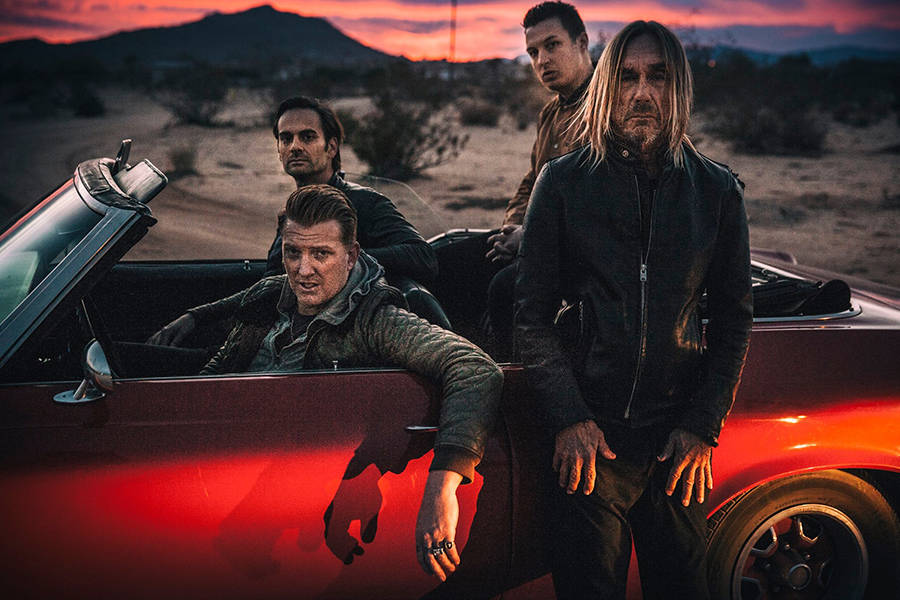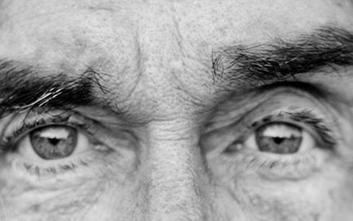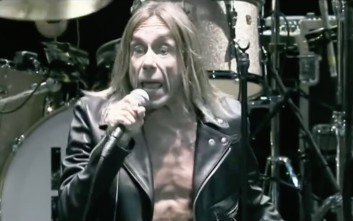Whenever I go to a record store I look for Iggy Pop records. It doesn’t matter that I’ve got most of what he’s put out, I’m more interested in what people are buying from his extensive back catalogue.
It’s not very often you’ll find a well-loved secondhand (or even firsthand, for that matter) copy of The Idiot or Lust For Life. That in itself tells you something; that Iggy has always been a better passenger than he has been a driver, a better star forward than a midfielder.
When partnered with Bowie in Berlin, Pop absolutely shone as a poet, a songwriter, a musician and truly cemented his place in the world as a cultural icon. Playing a similar role to Bowie in the 70s, Josh Homme is the driver on this record, evident in every arrangement on almost every song. However, while he may not be behind the wheel, Iggy is the passenger standing up through the sun roof, bottle of wine in hand, yelling at the pedestrians as he passes by, relishing every moment of it.

With a new right hand man, Iggy Pop is sharp as a knife on Post Pop Depression, bottling everything we’ve come to know about the ‘Godfather of Punk’, shaking it up and spraying it all over our eager faces.
A release from an icon so loved so late in the game will always be controversial, but most will realise quickly that this is by far Pop’s best release in many years – almost two decades – though it’s a different Pop we’re seeing entirely. While sonically it’s reminiscent of a Queens of the Stone Age record (some have been as bold as to say it’s a new QOTSA release with Iggy as front man), it’s Pop’s lyrical muses and vocal deliveries that are so interesting.
While some of his classic tongue-in-cheek smut, cheek and aggressiveness is evidenced in lines like “I’m gonna break into your heart, I’m gonna crawl under your skin”, Pop spends most of the record discussing the issues around existentialism.
He’s always struck many of us as a person unhappy with the status quo. Although that feels like an understatement, and probably is, Pop has always been the artist taking the less travelled road to find ways forward where others haven’t. On Post Pop Depression we catch the ‘Godfather of Punk’ in a rare moment of stillness, taking stock of his life thus far and peering into the future and discussing what could lie ahead. It’s Iggy Pop in a moment of vulnerability that we haven’t really seen him in before, without him losing the bite of his angst or the engagement of his attitude.
From his thoughts on the legacy he’s leaving behind (“all I’ve got is my name” – American Valhalla) to his ideas on what it truly means to be an artist and the meaning of life (“in a sense it’s so hard to figure it out”), Pop is introspective, thoughtful and considerate. While his reflection is interesting and engaging, it’s his wondering and sense of being lost in regards to the future that’s truly fascinating.
He’s far from the sound and lyrical inspiration of albums like Raw Power, but he doesn’t lose any power in his delivery or integrity in his songwriting. While in large part, from a musical standpoint at least, that can be attributed to Homme, this also comes down to Pop’s pure honesty and commitment to telling it how it is. Which is why he was so beloved in the first place. It’s a true testament to Pop’s ability to communicate that he’s able to deliver lyrics on being high and lyrics on working as artist in the music industry with the same fervour and passion.
The pivotal moment of this record comes in the last track, Paraguay. If this is, as most of the media has surmised, his last musical output, then Pop delivers his last track with a ‘fuck you’ attitude that can really only be emanated by one person. It’s Iggy giving a huge middle finger and a smile to a world he’s so deeply effected, while Homme drives him into the sunset cackling like a madman.



